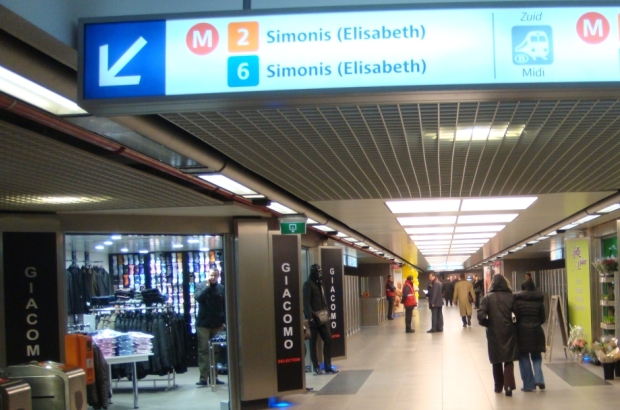- Daily & Weekly newsletters
- Buy & download The Bulletin
- Comment on our articles
€10 million to step up security around metro stations
Brussels public transport company the Stib will implement a plan of action to safeguard people around metro stations with the help an additional €10 million of funds it will soon receive from the Brussels government.
The extra money will also be used, in collaboration with homeless charities DIOGENES, Transit and Samusocial, to direct homeless people and addicts to an appropriate aid centre.
“The increasingly significant presence of drug addicts and people with nowhere to go particularly affects the Stib,” chief executive Brieuc de Meeûs said, noting the increased problems across the network, particularly in metro stations.
“It creates a growing feeling of insecurity among our customers and our staff and harms the attractiveness of our network.
“This is why we are keen to make an active contribution to resolving this problem by strengthening our security teams in support of the voluntary sector and the police services.”
De Meeûs said that this collaboration was essential to “meet this crucial challenge for Stib and the Brussels region.”
People living in Saint-Gilles, for example, where many problems are seen around Brussels-Midi station, have emphasised their unease. A petition launched on 15 October condemning the increase in broken car windows, drug addicts, drunks, fights and break-ins has received several hundred signatures.
“Customer complaints more than doubled between 2021 and 2023, and the year is not yet over," Stib said. "This problem is seriously undermining the Stib’s ability to carry out its work and the popularity of public transport."
The movement of trains in 900-volt tunnels also represents a real risk, not only for people straying there and drug addicts, but also for critical infrastructure in the metro stations, Stib added.
“The metro network is not a place where social services can take proper, humane care of down and outs or the addicted and direct them towards appropriate support,” the public transport operator added.
Inspired by action taken by the Parisian public transport network RATP, with the new funds, special Stib teams will be set up to patrol the stations 24/7.
They will assess drug addicts and the homeless so they can direct them towards the most suitable reception, care and accommodation centres.
The aim is to increase the number of PSS security staff, a scheme set up in 2017, by 30%. Another goal is to extend the hours of station security patrols earlier in the evening and later at night, periods seen as key times for crime.
“The security and comfort of passengers are crucial to the success of public transport,” said Brussels mobility minister Elke Van den Brandt.
“When we sounded the alarm on the drug problem in our stations and metro stations in November 2022, we immediately launched, with the Stib and my ministerial colleagues [Alain] Maron and [Rudi] Vervoort, the pilot scheme SubLINK, that proposes an integrated approach.
"This integration of social aid, medical help and security has shown itself to be the right approach.
"Today, we are expanding this programme to ensure security in stations and provide treatment and appropriate advice to affected people."
Her colleague, Brussels minister for health and social action Alain Maron, noted in particular the opening of a second safe drug consumption space in the Yser/Ribaucourt area as well as the creation of a drug addict crisis centre.
"These aids represent a real alternative to taking drugs in public spaces," he said. "It is also an opportunity to carry out psycho-medical-social work with these people."


















